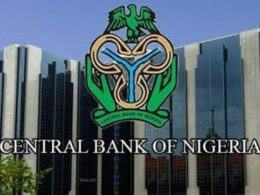…Urges banks to adopt blockchain analytics to curb fraud
By Chinwendu Obienyi
Nigeria has emerged as the leading player in sub-Saharan Africa’s cryptocurrency market, contributing approximately $59 billion to the region’s estimated $125 billion in crypto transactions between July 2023 and June 2024, a 2025 report by KPMG Nigeria and blockchain firm, Chainalysis revealed recently.
The significant volume occurred despite the Central Bank of Nigeria’s (CBN) 2021 ban on cryptocurrency trading, highlighting the resilience and growing adoption of digital assets in the country.
The report titled; Crypto Risk and Opportunities in Nigeria: A New Banking Paradigm suggested that economic hardship is a key driver of Nigeria’s high crypto adoption, adding that 85 per cent of the total crypto value received by the country’s local exchanges consisted of small retail and professional transactions under $1 million.
“This signals the real-world utilization of crypto, especially in the day-to-day transactions, rather than as an investment alternative.
Notwithstanding Nigeria’s leading position in the Sub-Saharan Africa region, crypto transaction inflows have experienced slight fluctuations between 2021 to 2023 with minor dips in consecutive years. However, 2024 saw a notable rebound, with inflows rising by approximately 25 per cent year-on-year (y/y)”, the report stated.
It also added that the decline in crypto value received from $47.0 billion in 2021 to $45.0 billion in 2022 aligns with the broader market trends during that time, stressing that the subsequent rise from $44.3 billion in 2023 to $55.4 billion in 2024 reflects a wider market rebound.
It will be recalled that the apex bank had in February 2021, banned financial institutions from facilitating crypto-transactions. To maintain the status quo, the CBN fined 6 banks to the tune of N1.31 billion for reportedly contravening its circular on cryptocurrency in 2022.
However, the CBN in December 2023, partially reversed the ban, allowing banks to work with licensed crypto firms and revealing that there is constant engagement with the Securities and Exchange Commission (SEC) on the adoption of crypto transactions in the country. To buttress this, the SEC revealed last month that it is working on new guidelines that will allow cryptocurrency trading and digitized transactions to be taxed as it seeks to boost revenue.
The commission also explained that it is also looking to extend the scope of crypto licensing, including issuing permits that will enable residents to trade in formal centralized exchanges where transactions can be monitored and taxed.
According to KPMG and Chainalysis, the devaluation of Naira in 2024 may have also impacted the adoption patterns by Nigerians. “Additionally, the high costs associated with cross-border transactions via traditional finance channels may have driven many Nigerians (both domestic and in the diaspora) to leverage crypto for a faster and more cost-effective remittance alternative”, it noted.
The report also revealed that with crypto scam revenues reaching $10 billion in 2024, the onus is on Nigerian banks to leverage advanced technologies such as blockchain analytics to detect illicit finance.
“By incorporating on-chain metrics in their assessment, they are able to develop a comprehensive view of counterparties, delivery channels and even transaction patterns. At the same time, collaboration among banks, regulators, and VASPs in sharing intelligence, building technical capacity, and developing new standards for risk management will be key.
By integrating blockchain analytics into their compliance frameworks, forward thinking banks and other financial institutions would enhance their ability to detect illicit finance, expand into new financial services, and position themselves at the forefront of an increasingly digital financial system”, the report concluded.





